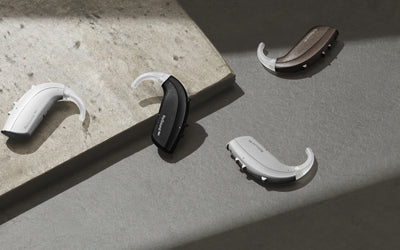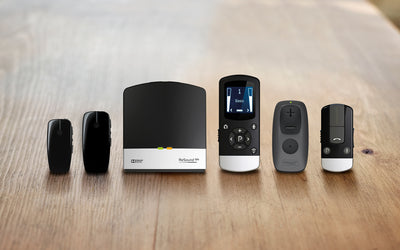By
Niamh Harnett
In the era of Zoom calls, podcasts, and playlists most of us have become attached to our headphones. With the technology getting better and better and more brands than ever releasing impressive devices it’s no wonder we are big fans of the connection and privacy headphones provide.
However, as we use our headphones, we often forget that increasing the volume by even just a notch or two could be having a serious impact on your hearing and could be contributing to hearing loss.
What does the research say?
A study published in Noise and Health explored the listening habits and hearing thresholds in adolescents. The results indicated that the frequency and listening volume was associated with poorer hearing thresholds and an increase in self-reported hearing problems.
Another study of university students, published by Health Scope found that individuals who used their earphones more frequently have weaker hearing than those who regulated their listening. Both studies correlated longer lifetime exposure with inferior hearing.
How do headphones cause hearing loss?
Hearing loss triggered by headphones and unsafe listening practices is an example of noise-induced hearing loss (NIHL). To understand NIHL it’s important to know how our ears work. The cochlea, an organ found within the inner ear contains delicate hearing cells called hair cells. Sound-waves cause vibrations to move through the inner ear and those hair cells capture signals to send to the brain which are then processed as sound.
Exposure to loud sound increases the force of these vibrations and if the hair cells are exposed to these vibrations for too long or the force is too intense, they will become weak. Repeated exposure can cause the hair cells to be damaged beyond repair, resulting in NIHL.

How do I safely use headphones?
Headphone can be used safely to reduce the risk of NIHL. An investigation by The WHO looked at hearing loss due to recreational exposure to loud sounds. They identified some key factors that you should be aware of.
- Lower the volume: It might seem simple but lowering the volume by just a few notches is the most effective thing you can do to protect your hearing.
- Give your ears a break: It’s important to take regular breaks when using headphones. Sound intensity doubles with every 3dB increase. Each time you increase the volume by even a little bit damage can occur at a much faster rate.
- Invest in noise-reduction or noise-cancelling headphones: Noise cancellation can help buffer external noise. By filtering out these sounds your headphones allow you to hear just as clearly but at lower and safer volume.
- Utilise the 80-90 rule: The 80-90 rule is quite simple. It means listening at 80% of your devices maximum volume for no longer than 90 minutes per day. You can listen for longer if you turn it down. At 60% of the maximum volume, you could listen all day, every day, safely.
To keep your ears safe from NIHL it’s important that you make use of the tips above and be aware of your listening practises.
We are happy to help you find a provider close to you, no matter where you are in the world.You may also be interested in our article on hearing aid prices, and how to make sure you get what you pay for.

Shop All Hearing Aids
Shop now
Shop Accessories
Shop now
Speak To Our Audiologists
Contact Us
